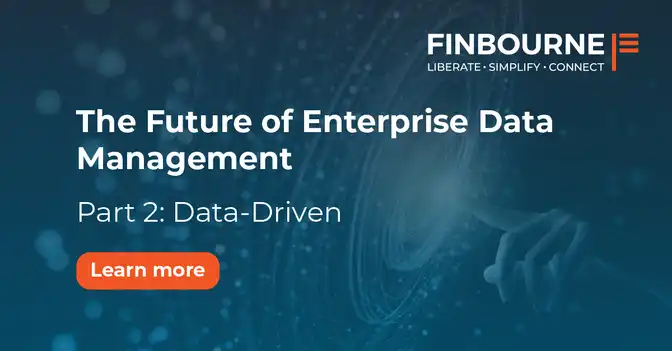As investment firms navigate an increasingly data-driven world, understanding the effects that exponential increases in data volumes and velocity will have on their organisation is crucial for maintaining competitive advantage and operational excellence.
So what lies ahead? Firms need to understand emerging technologies, leverage them effectively in data management, and engage strategically with technology vendors to maintain their edge.
The Importance of Interoperability
As firms continue to adopt new technologies, they face significant challenges in integrating these systems with existing EDM solutions. The key to overcoming these integration hurdles lies in adopting flexible platforms that can seamlessly connect with a variety of data sources and applications. Solutions that offer modular design, API-led architecture, and advanced data governance tools are essential for creating a cohesive technology ecosystem that can evolve with the changing needs of the business.
This interoperability can liberate investment managers to regain control of operational growth. This is particularly timely, given a new generation of investors demanding access to their investment data, and the increased scrutiny asset managers are facing from regulators on data collection and management.
True interoperability de-risks operational change and allows asset managers to break free from an accumulation of best-in-class systems and interfaces, or even single vendor dependency.
Regulatory and Compliance Challenges
As the data landscape continues to evolve, so too does the regulatory framework. Investment firms must navigate a complex array of new regulations that influence data management strategies. The proactive management of these regulatory changes is becoming an indispensable function of EDM systems. These systems are crucial for ensuring compliance, providing the infrastructure to adapt quickly to new laws and regulations, which in turn helps protect firms from potential financial penalties and reputational damage.
For instance, the transition in U.S. securities trading from T+2 to T+1 settlement cycles aims to mitigate market risk and enhance capital efficiency. However, it also places new demands on EDM systems to handle quicker settlements efficiently. In our analysis in Mastering Data Management for T+1 Success | FINBOURNE Technology, we discuss the critical capabilities that modern EDM solutions must have to stay ahead in this changing regulatory environment – underscoring the importance of having agile, responsive data management systems that can swiftly adapt to such regulatory changes.
Integrating Unstructured Data
Unstructured data includes everything from company reports and satellite imagery to supply chain details. When combined with the already vast amounts of investment, market, and reference data, it’s clear why managing this information with precision is becoming increasingly difficult. Legacy systems compound these issues, leading to data fragmentation and the creation of organisational silos. These outdated systems often require labor-intensive manual interventions to manage data effectively.
In response to growing investor demand and regulatory pressures, the integration of Environmental, Social, and Governance (ESG) data – often unstructured – into investment strategies has become a critical focus. Modern EDM systems must now equip investment managers with robust data management and analytical capabilities to distill actionable insights from this complex and unstructured ESG data. This capability is essential not only for aligning with investor preferences but also for fulfilling increasingly stringent regulatory requirements.
Despite sustainable finance marching at pace, the reality today is that many asset managers are struggling to aggregate and translate ESG investment data into a timely and reliable firm-wide view – with a detrimental impact to both portfolio operations and reporting.
Read part one of the series here.






